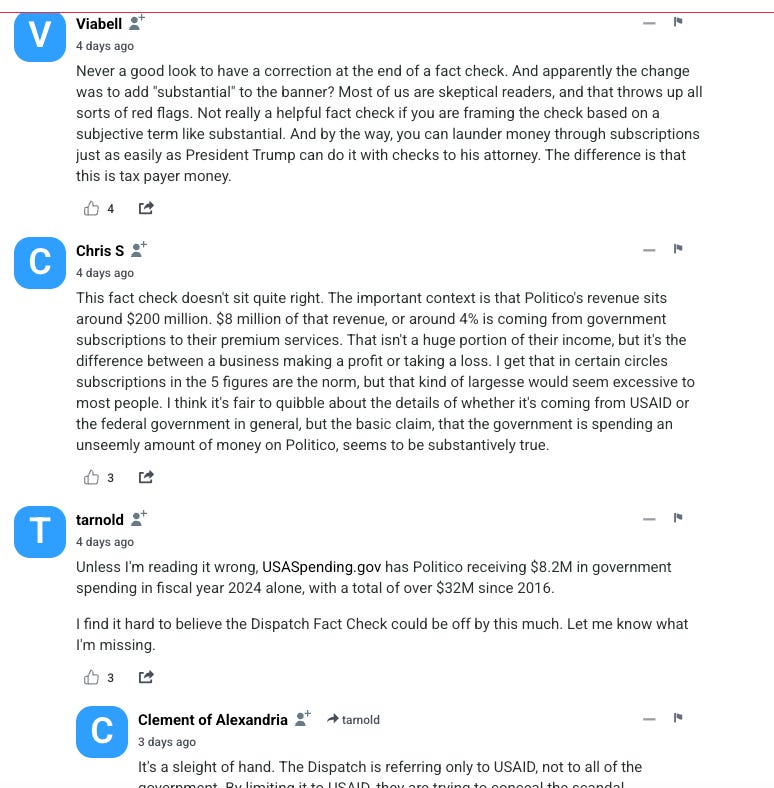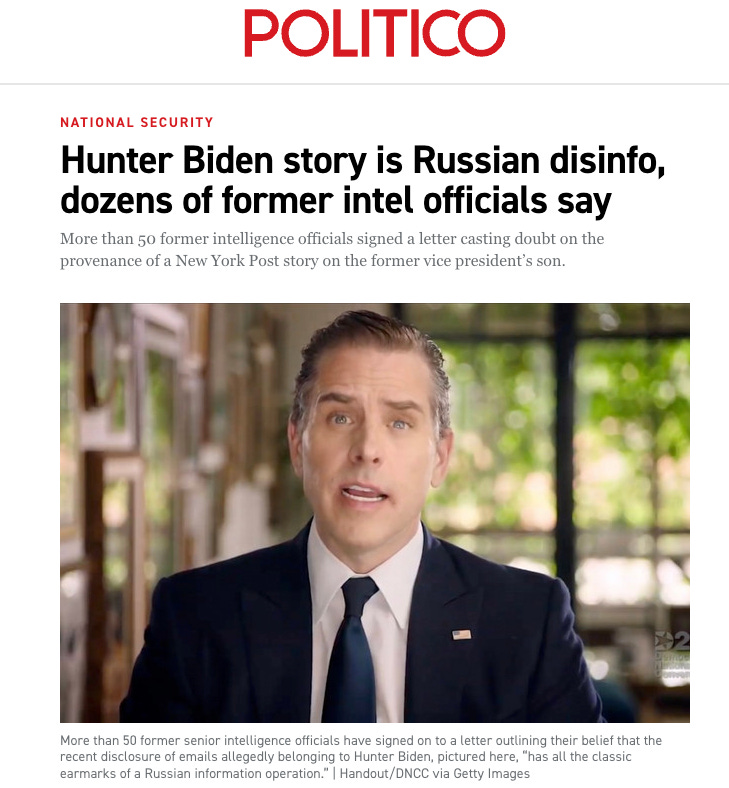By now, everyone has seen DOGE’s revelations about taxpayer dollars being funneled through government agencies like USAID to cover Politico’s corporate subscription services.
If you scroll through conservative outrage tweets, you might think USAID was directly bankrolling journalists to push left-wing narratives. And while skepticism about Politico’s integrity is entirely justified, that’s not exactly what’s happening here.
Let’s dive deeper. A quick Google search of “Politico scandal” unearths page after page of so-called “fact-checkers” dismissing the controversy as overblown. These supposed arbiters of truth claim USAID only paid $44,000 to Politico.
The truth is somewhere in the middle. Both sides engage in emotional manipulation to bolster their arguments, but the mainstream coverage conveniently omits a key fact: Politico received $8.2 million from various government entities within a single year—not over a decade, as some outlets misleadingly suggest.
Please see this delightful fact check on The Dispatch’s recent headline: No, Politico Did Not Receive ‘Substantial Funds’ from USAID
Correction, February 6, 2025: The headline of this piece has been updated to more accurately describe the contents of the fact-check. While Politico LLC did receive funds from USAID and other government agencies, the money was not in the form of grants but rather payments for subscriptions to its publications. Additionally, the $8.2 million figure cited refers to payments made in the 12 months leading up to February 2025, not dating back to 2016.
The comment section under this article is a good reflection of the public’s skepticism and exhaustion:
While neither side has been entirely transparent in this matter, DOGE deserves credit for exposing the extent to which media outlets prioritize keeping government agencies satisfied. Beyond that, it would be incredibly easy to launder money under the guise of bulk services. The bigger question remains: how do we ensure journalism stays unbiased and independently or privately funded, rather than reliant on or influenced by the government?
Amid this confusion, there is a silver lining: we’ve entered a new era of openness. Public trust in legacy media is collapsing, and independent journalism is on the rise. People desire transparency and to discern for themselves what facts matter. This is how it should be.
A truly free press is vital for our democracy. As John F. Kennedy famously addressed in his 1961 speech to the American Newspaper Publishers Association:
"The very word ‘secrecy’ is repugnant in a free and open society… we are as a people inherently and historically opposed to secret societies, to secret oaths, and to secret proceedings."
He went on to describe the printing press as:
"The recorder of man's deeds, the keeper of his conscience, the courier of his news... confident that with your help, man will be what he was born to be: free and independent."
Politico has long abandoned this role, opting instead to push narratives that serve an agenda rather than the truth.
Take Exhibit A:
The new administration is responding to growing public dissatisfaction with the government's cozy ties to the media. A sign of this shift is the Pentagon’s recent overhaul of resident press access, replacing Politico, NPR, and The New York Times with Breitbart, The New York Post, and HuffPost, Evening out the biases while also allowing a change of the guard annually. Even more significantly, President Trump has announced that independent journalists—including influential “mommy bloggers” and former Emmy winning, news producers turned indie media voices—can now apply for White House press credentials, marking a major departure from the old media gatekeeping system.
More people have moved to alternative news sources in the last five years, and the establishment is in panic.
In hindsight, it was death by a thousand small cuts, easy to miss at first, but gradually impossible to ignore during the pandemic as government officials regularly pressured Meta to delete specific posts and shadow-ban specific users.
We now know it was worse than we thought: the government illegally coerced Big Tech to censor the internet era’s town square discussions.
Perhaps our first introduction to the severity of government’s manipulation of information was during the George W. Bush administration, when in the aftermath of 9/11, Congress created the Department of Homeland Security supposedly to protect American citizens — not to spy on them.
However, Edward Snowden via The Intercept revealed that the government used this convenient crises to usher in its “solution” by utilizing tech companies to spy on the unsuspecting American people.
No wonder the old guard wants Tulsi Gabbard as far away from intelligence community as possible.
Not only did the NSA spy on us by placing our free speech in bull’s-eye, Intelligence agencies have long been working with media outlets to proliferate propaganda talking points via Operation Mockingbird.
In 1977, journalist Carl Berrnstein uncovered hundreds of American journalists working in conjunction with the CIA to spread propaganda abroad. Most understood that the agency was also working within America as well in order to manipulate public opinion.
Robert F. Kennedy Jr. even recently alleged that Operation Mockingbird was “alive and well today.”
He’s not alone in thinking this. Why wouldn’t a successful brainwashing tactic transition from a Nazi government pact with the Associated Press to post WWII America where the Washington Post colluded with the CIA, to the 4 AM “talking point” drops the media were given to disseminate propaganda during COVID?
Most of the time, it's the mainstream media that loudly decries “misinformation” when anyone dares to question the established narratives—yet they are often the ones spreading the most blatant falsehoods.
The exposure of our government’s agencies bedfellow—legacy media—has fueled the rise of independent journalism on platforms like Substack and Rumble, fostering a decentralized media landscape.
The future of journalism no longer rests with top-down conglomerates but with a diverse and competitive marketplace of ideas, ensuring that no single entity holds the power to define reality.








Excellent post and quite informative on the overarching direction of the media, away from top-down models and towards a grassroots system built on earned trust. I delve into all of these questions quite a bit in my substack and my latest book. Thank you for the balanced take on the USAID revelations too.